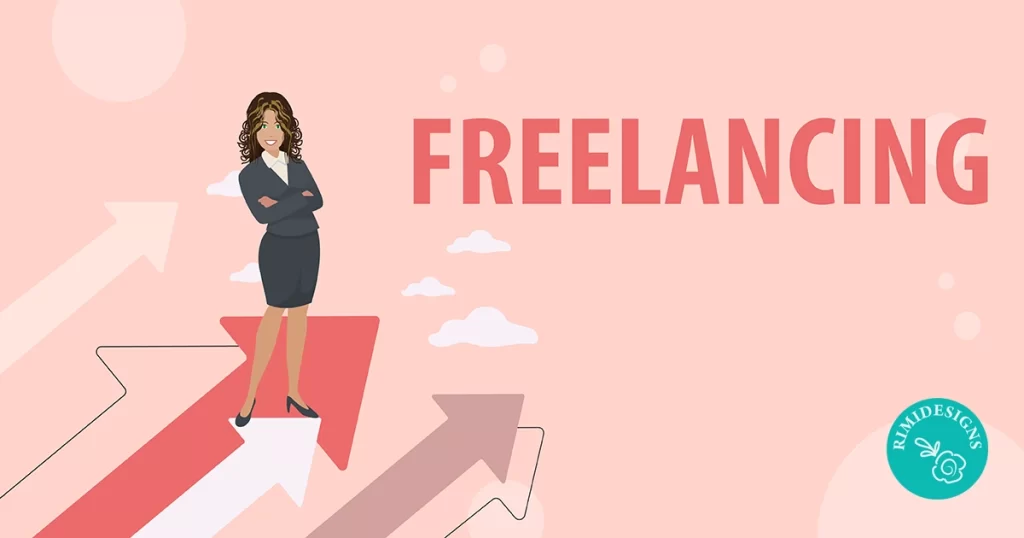
The 7 Most Important Things to Do Before You Quit Your Job to Freelance
Quitting your 9-to-5 job to begin a freelance career can be one of the most liberating and fruitful decisions you make in your career. Freelancers enjoy tremendous flexibility and autonomy, as well as the ability to create their own brand.
However, freelancers must hustle to find their own work — it’s not a guaranteed paycheck. Though freelancing can be an immensely beneficial career decision, it’s not something you want to jump into without careful preparation.
Here’s what you should know before you quit your job to become a freelancer.
1. Have a financial plan before you quit
Before you quit your job to pursue a freelance career, you should create a detailed plan that includes strategies to pursue clients and revenue, as well as how you’ll budget your money.
Freelancers often don’t understand the economic realities of per diem employment. If you don’t save enough money when you have a steady income and the opportunity to save up, you leave yourself susceptible in the event of an industry-wide downturn or a personal emergency.
Your freelance income can come in spurts and dry up for periods without much warning. So you should have at least 6 months of income set aside before you become a full-time freelancer.
New freelancers also need to remember the importance of having a solid health insurance plan. While some freelancers forgo health insurance due to the large expense involved, having health insurance ensures that your medical emergency does not become a financial cataclysm.
2. Turn your home into your office
Working from home probably seems like bliss, but it can also be a massive distraction. You’re the boss, you can plan your time however you want and you have no one to tell you that noon probably isn’t the best time to chat with your sister. However, freelancers need to sit down and hash out rules of their new home office. Specifically, you need to create the best possible work environment.
Your TV, internet, email, social media and phone should all live in another room. You can spend a lot of time doing email and talking on the phone and feeling like you’re working when you’re not earning a dime. You need to tell friends and family that you’re not constantly on-call just because you’re home.
3. Know that being your own boss isn’t as simple as it sounds
In a corporate environment, employees are used to regular check-ins and open, often jovial, communications with co-workers and superiors.
In a freelance arrangement, on the other hand, you’re left to handle all client negotiation and communication. In other words, you’re dealing with the pushback and fanning out the flames that your manager used to handle. And you don’t have co-workers to vent to.
Working with clients is different than working for a boss at a full-time job. Clients can be demanding and they often require more direct communication and courtesies.
Freelancers also need to be able to recognise a job well-done. In a corporate structure, that’s done by co-workers and superiors, but who pats you on the back when you work for yourself? Money isn’t the only compensation. Learn to recognise important milestones and celebrate when you complete them.
4. Treat yourself like a business owner
Freelancers aren’t just experts for hire. They’re the proprietors of their own brand. Not only do you need to be marketing yourself as such, you also should be taking steps to turn a one-person enterprise into a credible small business.
Learn to see and talk about yourself as the CEO of your freelance company, not just a freelancer. Clients and prospects will take you more seriously knowing that you take yourself seriously.
To legitimise your business, you should set up a business entity. You should also set up a business bank account and seek advice on how to deduct business expenses from your taxes.
On the marketing side, you need to be scouring online and offline networks to find new clients.
As a full-time freelancer, you need to be comfortable talking about yourself and what you can do. To build a brand, you must master the ins and outs of online freelance marketplaces, as well as keeping a ready-to-go stack of business cards, as you may come across prospective clients at the most unexpected times.
5. Know that fair bid is better than a cheap bid
While it might seem beneficial to undercut your competition’s bid in an attempt to win a gig, most bids are won by freelancers who offer a fair price and clearly explain why they’re the best person for the job. So bid smart, not necessarily cheap.
Clients are, more often than not, looking for high quality work as opposed to the lowest price. They’ll be willing to pay more for a service provider who has a great reputation and has produced exceptional work.
A freelancer’s rate (hourly or flat) also requires planning and should be established long before a client poses the question. Have an hourly rate in mind, even if your field doesn’t pay hourly. If you get $100-per-hour, then you need to take jobs that meet or beat that rate.
6. Become well versed in billing and invoicing
One of the most difficult aspects of the freelance transition is the unpredictable nature of payments. Most employees aren’t used to calling and inquiring about their paycheck. In fact, one of the major perks of working for a large, efficient company is that you know your paycheck will be in your mailbox or bank on the day it’s scheduled to be there.
Freelancers, however, have no such security or expectation. Instead, they’re often forced to repeatedly invoice and call to ask about their payment. Realise that suppliers will pay late, especially when you need the money the most. When those invoices lag, freelancers need to be diligent about picking up the phone and finding out why they haven’t been paid in a timely fashion.
Freelancers should also not rely on small clients for repeat business, especially when their personal financial success is hinged on a steady stream of business. Freelance for more than one company, so that if one company gets in financial hot water and decides to burn its freelancers, you have other income.
7. Commit to learning your industry inside and out
Whether you’re a freelance writer, computer programmer, graphic designer or another type of freelance professional, you need to constantly be improving your own skills and learning about the peers in your industry.
Take courses, attend seminars and attend one or two of the big annual conferences in your industry. Not only will this keep you on top of what’s trending, you’ll also learn from those who have been successful in your field.
SOURCE: Mashable



